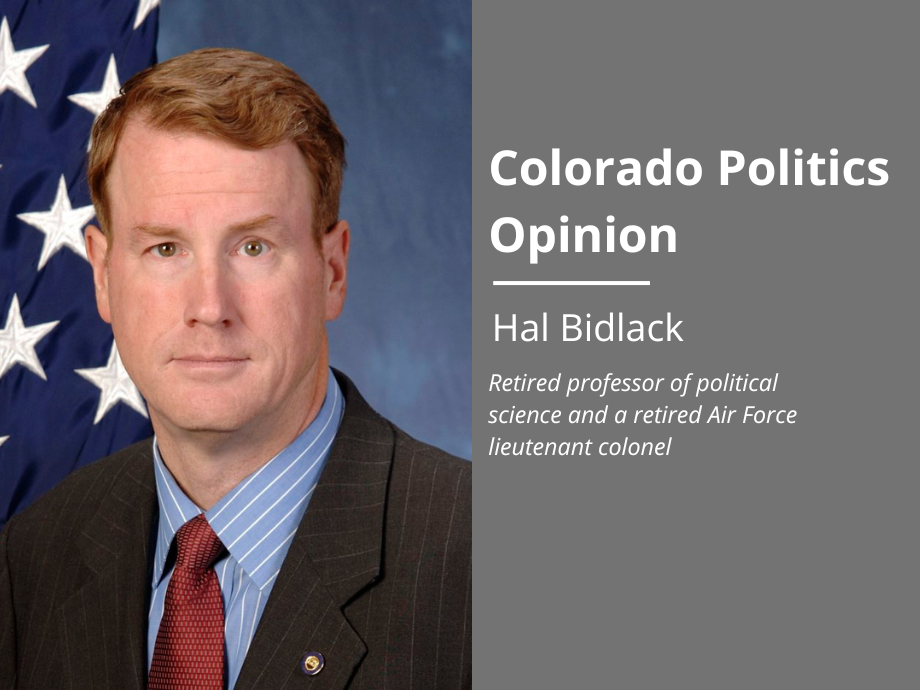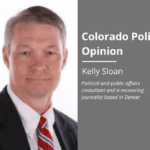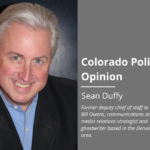A Dem agrees with Colorado GOP — primaries should be closed | BIDLACK


Back in 1904, when my grandmother was six years old – so not that long ago – a fairly liberal fellow named Robert LaFollette was governor of Wisconsin. He was tired of the back-room deals that selected candidates for office, the famous “smoke-filled rooms” that dominated a long period of our political history.
LaFollette was convinced this was a bad thing, and he drafted legislation passed in the Wisconsin legislature that gave the voters of that lovely state a degree of control and input into whom was chosen to run for office. This was the birth of the political primary.
During the times known as the “progressive era,” from roughly 1890 to 1920 or so, this experiment in candidate selection picked up steam, so by 1916, 25 of the then-48 states had some form of primary. After World War I, when more conservative governance took over, the number of primaries was rolled back, until after World War II when the liberals took over (whew!) and we saw the number of primaries grow.
The idea, of course, was the people should have a prominent role in selecting not only the winners of the elections involved, but also the actual candidates running in those elections. What seems quite common now is actually a relatively recent development in our political system (Heck, my mom was born in 1918. Remember we are still a relatively young nation).
Stay up to speed: Sign up for daily opinion in your inbox Monday-Friday
On the presidential level, Hubert H. Humphrey, whom I remember well with respect and affection, was the sitting vice president in 1968, and he would be the very last nominee of either party to win their party’s presidential nomination without competing in any primaries. This was the last hurrah of the smoke-filled room. From then on, primaries were the name of the game.
Which, of course, brings me to how today I agree with the Colorado Republican Party (gosh, even typing those words makes me shudder, just a little bit). Well, I agree with a broader notion but not what they are doing, exactly. Confused? So am I.
I’ve written on this general subject before, and now again because it is an active court case that could shape how candidates are selected, and that is an important issue. Seemingly minor court cases sometimes carry very significant weight.
As seen in a recent Colorado Politics story, the Colorado GOP is asking a court to strike down the will of the people. That alone would not be breaking news. The modern Trumpian GOP respects the will of the people when they are supported, but when the voters don’t vote GOP, they claim election fraud, as in Arizona and other places in 2020 and 2022.
What the GOPers want here in Colorado is to have a judge cancel the will of the people, as expressed in a 2016 law that allows unaffiliated voters to take part in party primaries. The GOP argues participation in a primary should be limited to members of said political party.
Now, I admit, my gut reaction to any political entity seeking to overturn an actual vote of the people is quite negative. And heck, the Colorado GOP Central Committee couldn’t muster enough votes for the party to formally endorse voiding the election results. But a committed few in the GOP state leadership went to court anyway and, bless their hearts, I agree with their reasoning.
Almost exactly half of Colorado registered voters – 48% – are unaffiliated (we used to call them “independents”). After the passing of the 2016 law, those folks are allowed to ask for ballots from either party for primary elections. And though New Hampshire isn’t Colorado, the recent presidential primary election there showed what can happen. Nikki Haley desperately sought the votes of unaffiliateds knowing she was going to lose big to former President Donald Trump among actual Republican voters. She hoped, unsuccessfully, she might even win the vote count and kick-start her floundering campaign, with the help of these unaffiliated folks.
There are a couple of reasons I feel unaffiliated folks should not be able to participate in party primaries. First, political parties are akin to private organizations, wherein you gain membership by declaring yourself a member at your county clerk.
The parties run the primaries and therein select candidates based on shared belief systems. Allowing outsiders, with political points of view that span the political spectrum, to vote is to diminish the ability of the party to find candidates that agree with the core principles of the party.
Secondly, open primaries make room for, well, shenanigans. Back in 2020, Trump urged his supporters in South Carolina – an open primary state – to vote for U.S. Sen. Bernie Sanders in the Democratic Party’s primary. That was not, of course, because Trump suddenly became a progressive again (spoiler: he was a liberal on many, many issues until he needed to flip-flop to run as a Republican). Rather, he was trying to sow discord and confusion, hoping it would damage Joe Biden and make Biden less electable. Trump was, I’m sure, quite confident he would have beaten Sanders in a general election, and I’m not sure he is wrong.
Look, a political party is fundamentally a private organization anyone can join and participate in. When you allow outsiders in you open a Pandora’s box of problems, as seen in New Hampshire just last week. In Colorado, we have twice as many unaffiliated voters as we do Republicans. I’m OK with the GOP being able to guard, to a degree, against an outside takeover, such as Trump imagined on the Dem side in 2020.
I’d frankly be a hypocrite if I was OK with unaffiliated folks only messing with the GOP when it served my own political agenda. Sauce for the goose, as it were. The price of not being a hypocrite is admitting when I agree with the GOP on something.
And so, though I don’t expect to type these words often, on this one issue, I agree with the Republican Party, and I hope this particular legal case is successful.
Hal Bidlack is a retired professor of political science and a retired Air Force lieutenant colonel who taught more than 17 years at the U.S. Air Force Academy in Colorado Springs.











